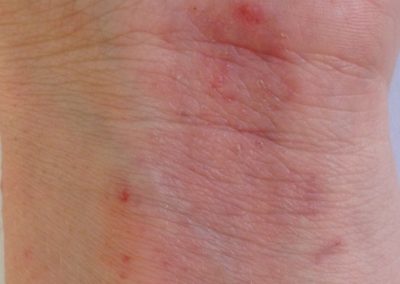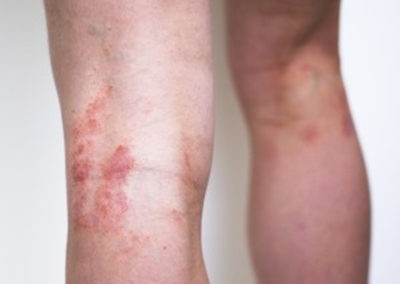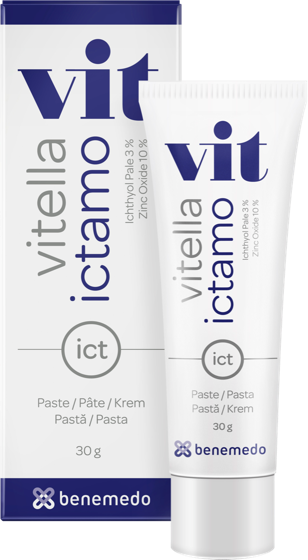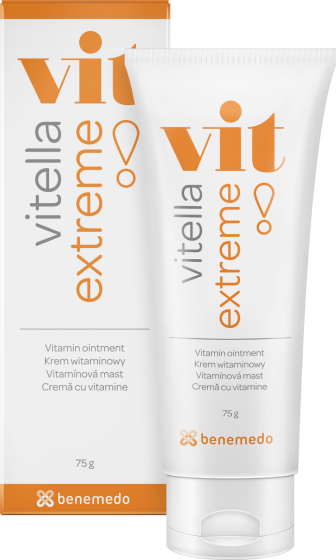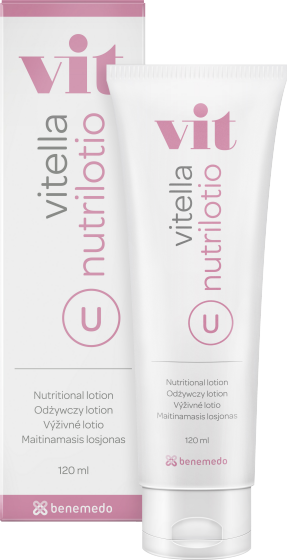Atopic Eczema
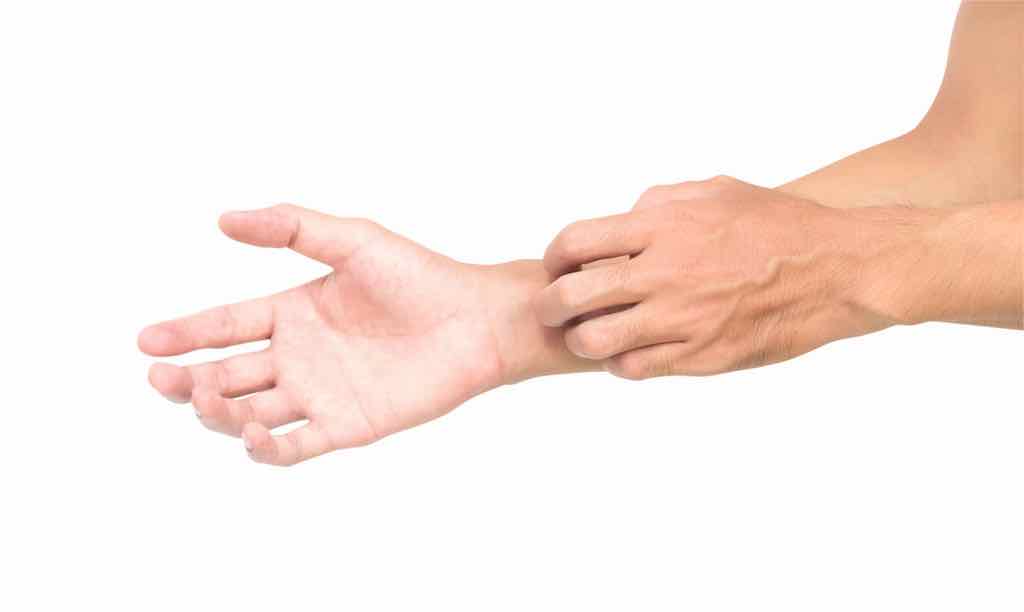
Cells have poor cohesion and die faster than in healthy skin. Inflammation then appears, with the skin becoming red, spider and dry.
Atopic eczema is a very common chronic skin disease that affects around 10 % of the population, adults and children alike. The skin of a healthy person is covered with a protective film of skin that is insufficient in people suffering from atopic eczema. Cells have poor cohesion and die faster than in healthy skin. Inflammation then appears, with the skin becoming red, cracked and dry. Small spots appear on the skin, which festers and subsequently develops a hard crust.
Dry areas sting and itch, forcing the sufferer to scratch. This, however, leads to only temporary relief because the scratched areas are then very painful. Eczema brings with it other problems. Itching is particularly troublesome at night, which negatively affects the quality of sleep and the state of mind.
What causes atopic eczema?
Hereditary factors play a fundamental part in atopic eczema. Experts say that if one of your parents suffered from the disease, there is a 56 % chance that you will have it too. If, however, both parrents suffer from eczema, the likelihood that you will have it rises to 81 %. Among the other factors to trigger the disease are certain foods (for example, nuts, citrus fruits, dairy products), animal fur, plant pollen, dust and detergents.
This is accompanied by increased production of keratin, which builds up in the pores and blocks them. Bacteria (propionibacterium acnes) appearing on the skin, in particular in places where an excess of grease is produced, also leads to the creation or cordones and inflammations.
Treating atopic eczema
Unfortunately, it is as yet impossible to rid one self of eczema for good. A little effort, however, and you will be able to keep it under control, at least to a certain extent. The main thing to do is to remove allergens from the surroundings in which the sufferer moves. Eczema worsens in a dusty environment, in contact with detergents and other chemical products and in contact with animals or plant pollen. A specialist – an allergologist or dermatologist – will find out the allergens a person is sensitive to.
The areas affected need to be continually and thoroughly salved, best of all with greasy hypoallergenic products with calcium and vitamin A and E content. Sufferers should also avoid using scented shower gels and soaps and should instead use special bath and shower oils. If eczema reaches the acute stage, with festering and blisters appearing on the skin, it is time to visit a dermatologist, who will prescribe you with a healing ointment, containing corticoids if required. Immunomodulators are also now being prescribed. These can be used over the long-term and have no side-effects.
Looking for a treatement?
Vitella Ictamo
Restoring paste.
For painful, irritated or deteriorated skin.
Vitella Extreme
Protective vitamin ointment.
Intended for dry and very dry skin.
Vitella U
Softening nourishing lotion.
Designed to provide regular care for dry and atopic skin.
